Tom's Guide Verdict
Mixbook is the easiest photo book service I've used, offering extensive and easy-to-use customization options with the added benefit of themed presets. I achieved the exact creative effect I wanted effortlessly. The image quality is excellent, with no pixelation even when scaled up to full resolution. Color representation is brilliant and makes images feel lifelike. The high-quality finish and affordable price make this photo book a must-have.
Pros
- +
Excellent image quality
- +
Great color representation
- +
Easiest software out there
- +
Affordable
- +
High-quality finish
Cons
- -
Very vivid pinks are oversaturated
- -
Visible spine in the double-page spread
Why you can trust Tom's Guide
If you’re on the hunt for a service to put all of your favorite memories in one place, Mixbook is the easiest and most effective out there. It’s definitely the best photo book service and ideal for beginners and seasoned photo book professionals alike.
The printed image quality is excellent, the software for creating the book is incredibly easy to use, and the final book is high quality, too. Color representation is brilliant — it makes the book feel super high-quality and brings life to the pages. The only downsides are that bright pink colors fall victim to oversaturation, and there is an obvious join in the gutter of the book when you get up close. But I’d still say Mixbook is one of the best-value services out there.
Mixbook is my favorite photobook service, but is it the one for you? You can find out more by reading this full Mixbook Photo Book review.
Mixbook Photo Book review: Specs
Price | |
Cover options | Softcover, Hardcover, Lay-flat |
Cover colors | Custom |
Number of pages | Minimum 20, Maximum 399 |
Sizes | 6x6, 8x8, 10x10, 12x12 inches |
App | Yes |
Standard delivery time | 6-10 days |
Mixbook Photo Book review: Price & availability
Mixbook photo books are available from the Mixbook website starting from $14. These photobooks are super affordable, but much like with other services, the price increases as you select larger books and add more pages. Moving between hard and soft covers will also alter the price, but it all depends on whether you are looking for a premium coffee table ornament or a more casual book to occasionally recount the memories of your vacation.
Similarly, Chatbooks’ photo book service starts from $15, but offers slightly lower quality paper and more unreliable printing, as I experienced some minor color disparities. Not to mention the largest Chatbooks option is 10 x 10 inches. Mixbook gives you more bang for your buck with a maximum size of 12 x 12 inches.

Shutterfly and Printique are more expensive, with Printique being the most premium option and much more of a“coffee table book” service, starting from $45. Mixbook is a good option before you take the step into the world of premium, expensive photo books.
I order the largest sizes from every photo book service I test, so I can see how images come out in full size. From Mixbook, I ordered a 12x12-inch hardback photobook with 20 pages, which costs $86. This is the largest book offered by Mixbook with the minimum number of pages. This was more expensive than the 10x10-inch book ordered from Chatbooks, which cost $50, but obviously, the size of the Mixbook is bigger.
Get instant access to breaking news, the hottest reviews, great deals and helpful tips.
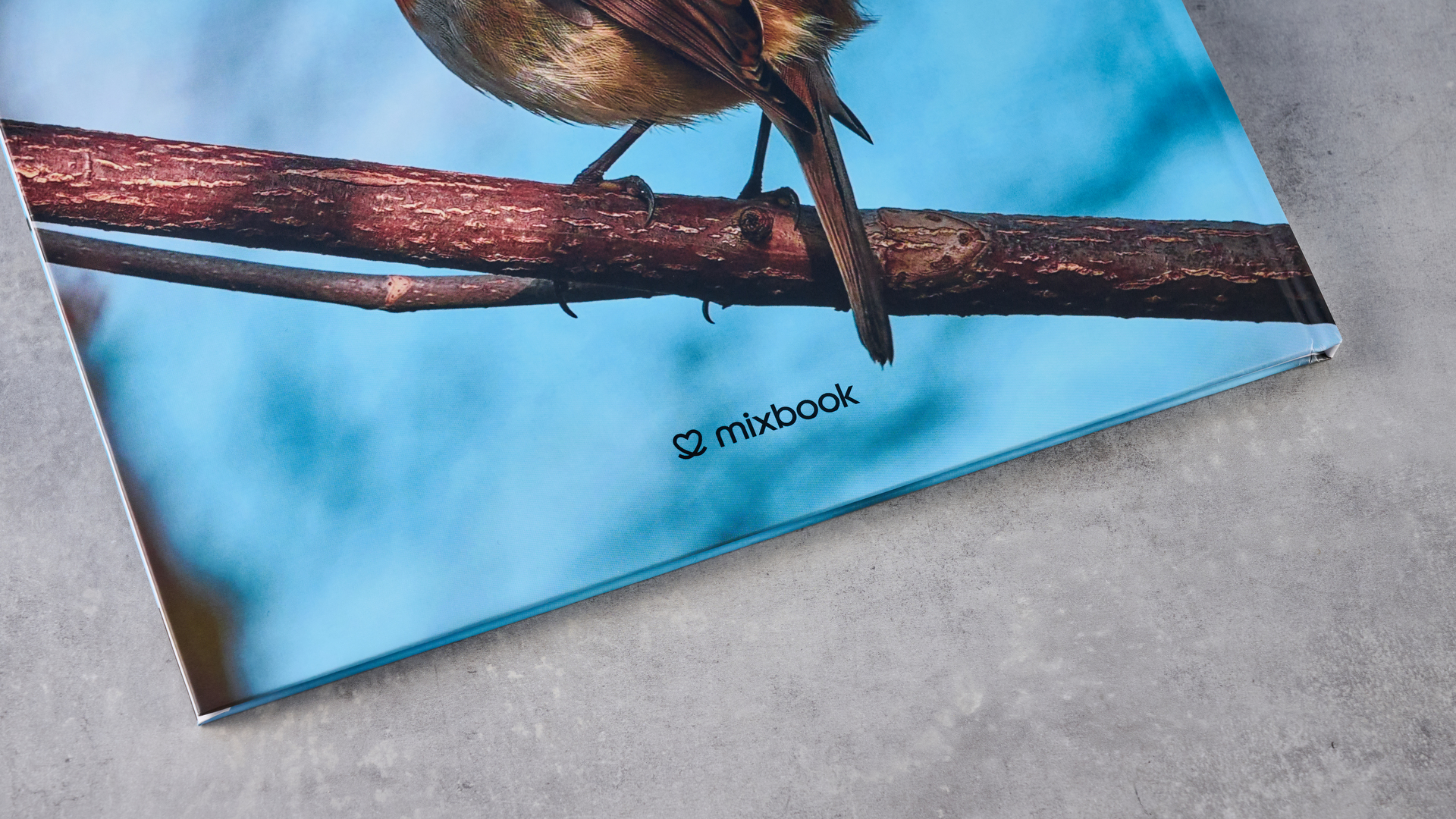
Mixbook also offers lay-flat options where, as the name suggests, the books lay flat to expose the entire page, and nothing is lost in the gutter. But again, this comes at a premium. Chatbooks also offers this binding option at an extra cost.
Despite the price difference, I would recommend keeping an eye on the Mixbook site or even signing up for their mailing list, as they regularly have offer codes available for their products. I have even received codes for 50% off their 12x12-inch books, and new customers get deals too.
Mixbook Photo Book review: Software & production
The Mixbook production software is by far the easiest I’ve tested. There are so many templates to choose from, I was quite literally spoiled for choice. After going through all of the images I wanted to use, I decided that the travel typography preset would be the best option to fit the vibe I wanted. But there are presets for everything from birthdays to weddings, and all these templates make the creation process extremely straightforward.
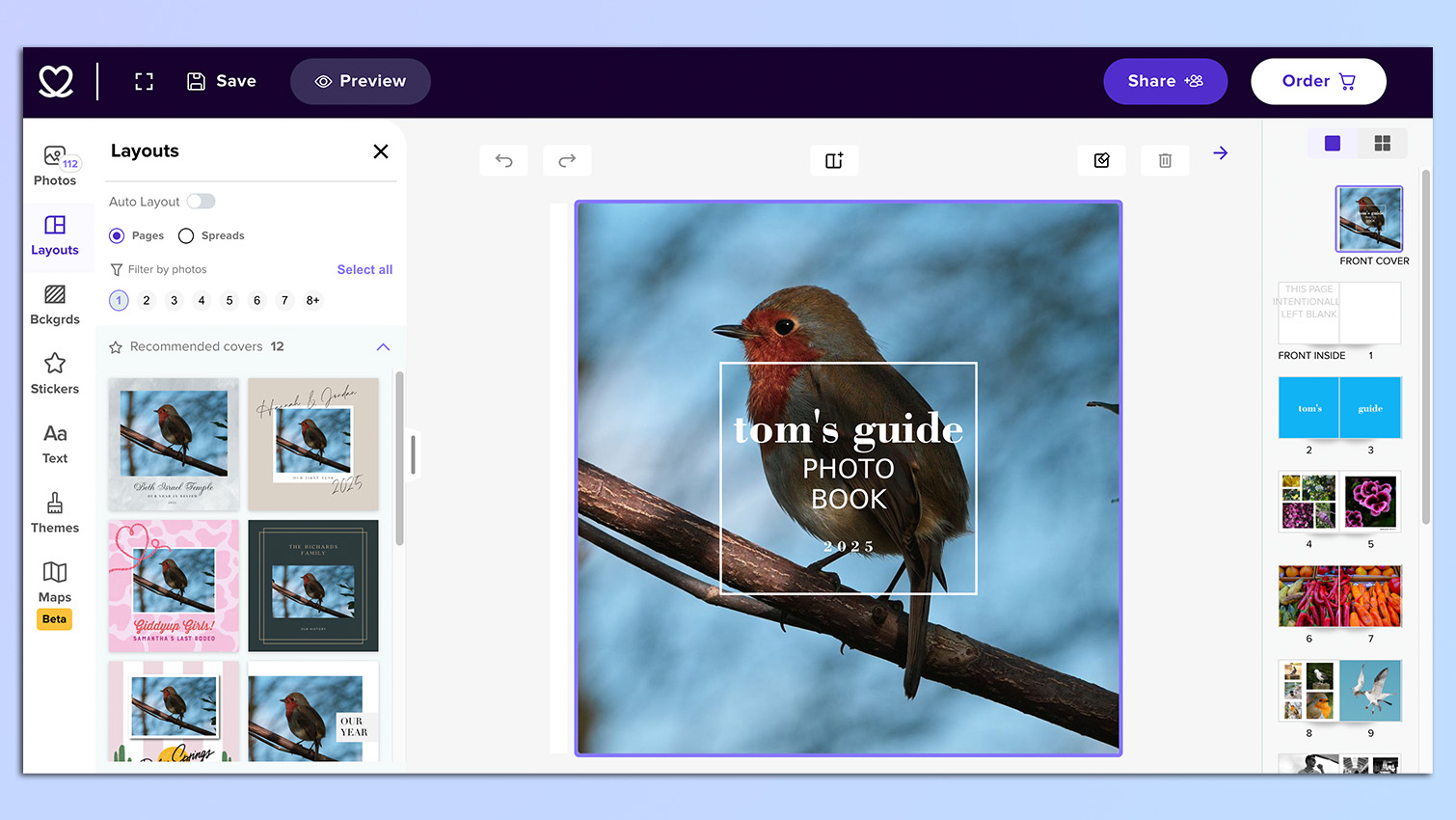
It was easy to upload all of my own images to the website, and it put my images into a bank to work from. I also had the option to automatically remove my images from this bank once they had been used to avoid any duplicates from cropping up in the photo book, but this is also an option on some other photo book creation sites.
I edited all of the images I used in Photoshop like I would normally, but you also have the option to edit your images and add effects to them on the Mixbook website. I used the cropping tool on the site to perfectly reframe my photos, which was super useful and helped me get them in the correct position for collage pages.

There is also the option to use AI to come up with image caption ideas; it came up with things like “lost in thought by the waves” and “finding peace under the tent’s shade,” which didn’t capture what’s happening in the image. The AI option is useful if you want to make your book quickly but still give the appearance of a personal touch.
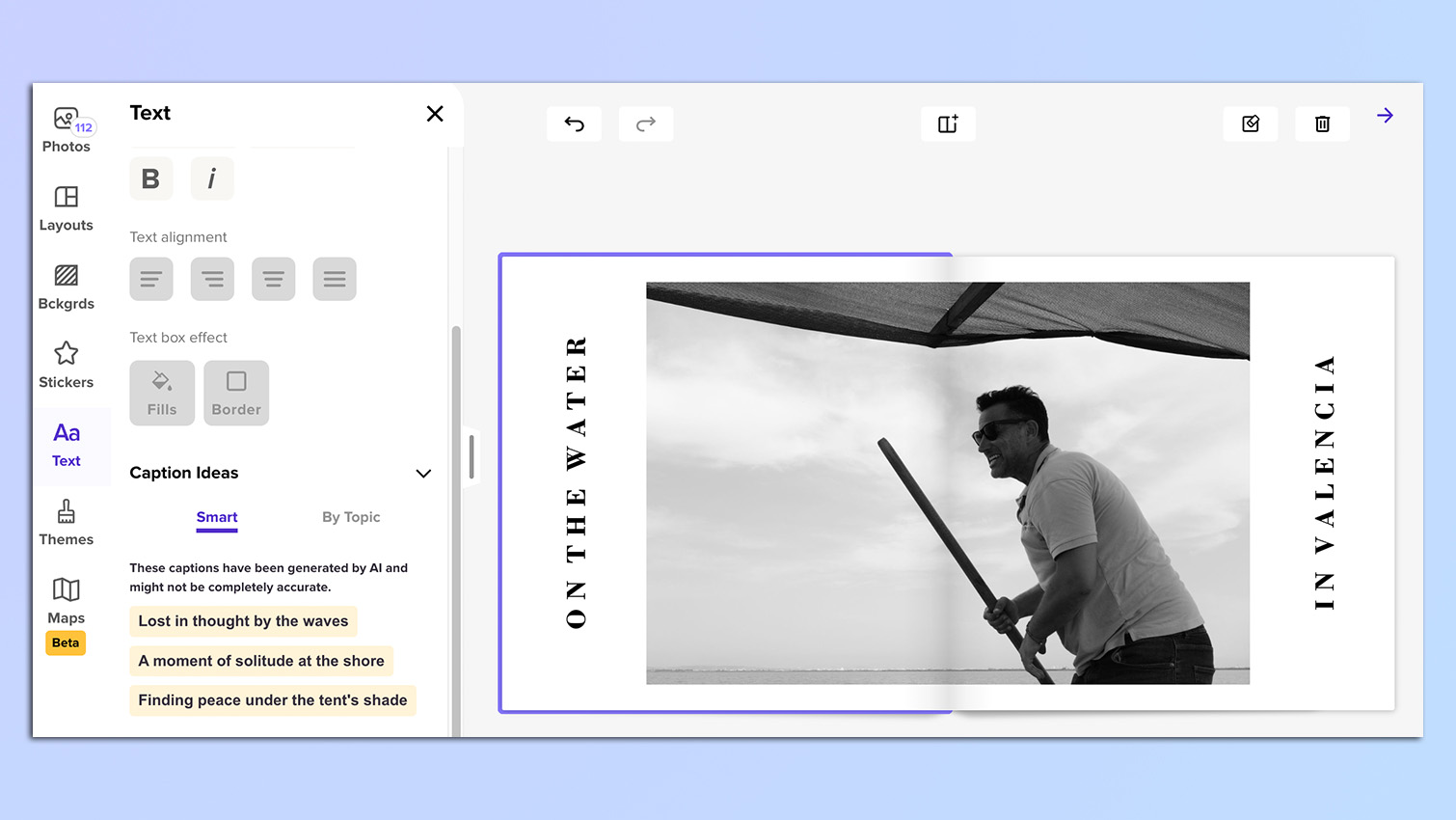
Compared with my use of Chatbooks and Vistaprint, I had the most creative freedom when using Mixbook. I was able to achieve exactly what I wanted with minimal fuss.
Mixbook Photo Book review: Print quality
I was very impressed with the quality of the Mixbook photo book. The Mixbook album was well-made and didn’t demonstrate some of the issues I had with Chatbooks.
First, I was impressed with the quality of the Mixbook's cover. I used an image of a robin for this, and the colors were vibrant without being oversaturated. The print quality was great and did justice to the sharpness of the photo.
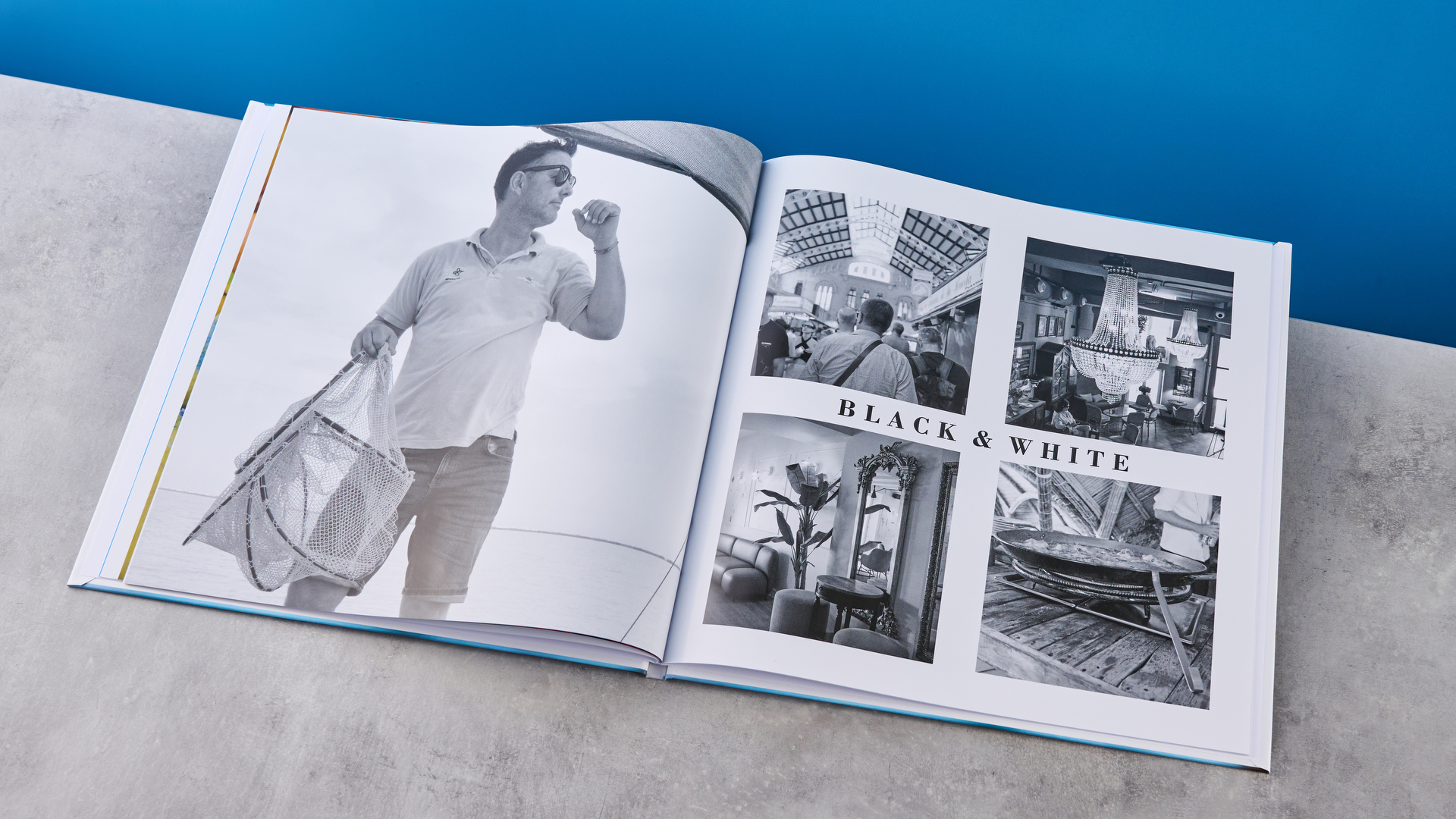
On my first flip through the book, I was blown away by the luster paper used. Even though I viewed the book in bright light conditions, I had no issue with any of the images on the other side of the page bleeding through. This was an issue with the Chatbooks photo book, as the paper used was a lot thinner.
Inside, the colors of the Mixbook photo book were incredibly vibrant, matching the cover Colors were bright and rich, yet true to life. Mixbook prints blues especially vividly. The colorful spread featuring Bumblebee and the multi-colored bunting demonstrates exactly the warmth brought to the images by the printing process.

The water photography images looked particularly good with Mixbook. When I printed these same images from the Chatbooks service, they felt flat and almost lifeless. When I view the image files on my computer, they feel full of life, so I was glad to see this replicated on the page by Mixbook. You can see this in the gallery below.


Even so, Mixbook isn’t entirely perfect. Across the double-page spread of the image of the vegetable stand, I noticed a white line where the pages join in the spine of the book. This was only apparent when I got up close to inspect the book, and is not something that particularly stands out otherwise. I’m sure this issue is because I used the minimum number of pages, as more pages would fill out the spine to negate this, but I still think it’s a shame.
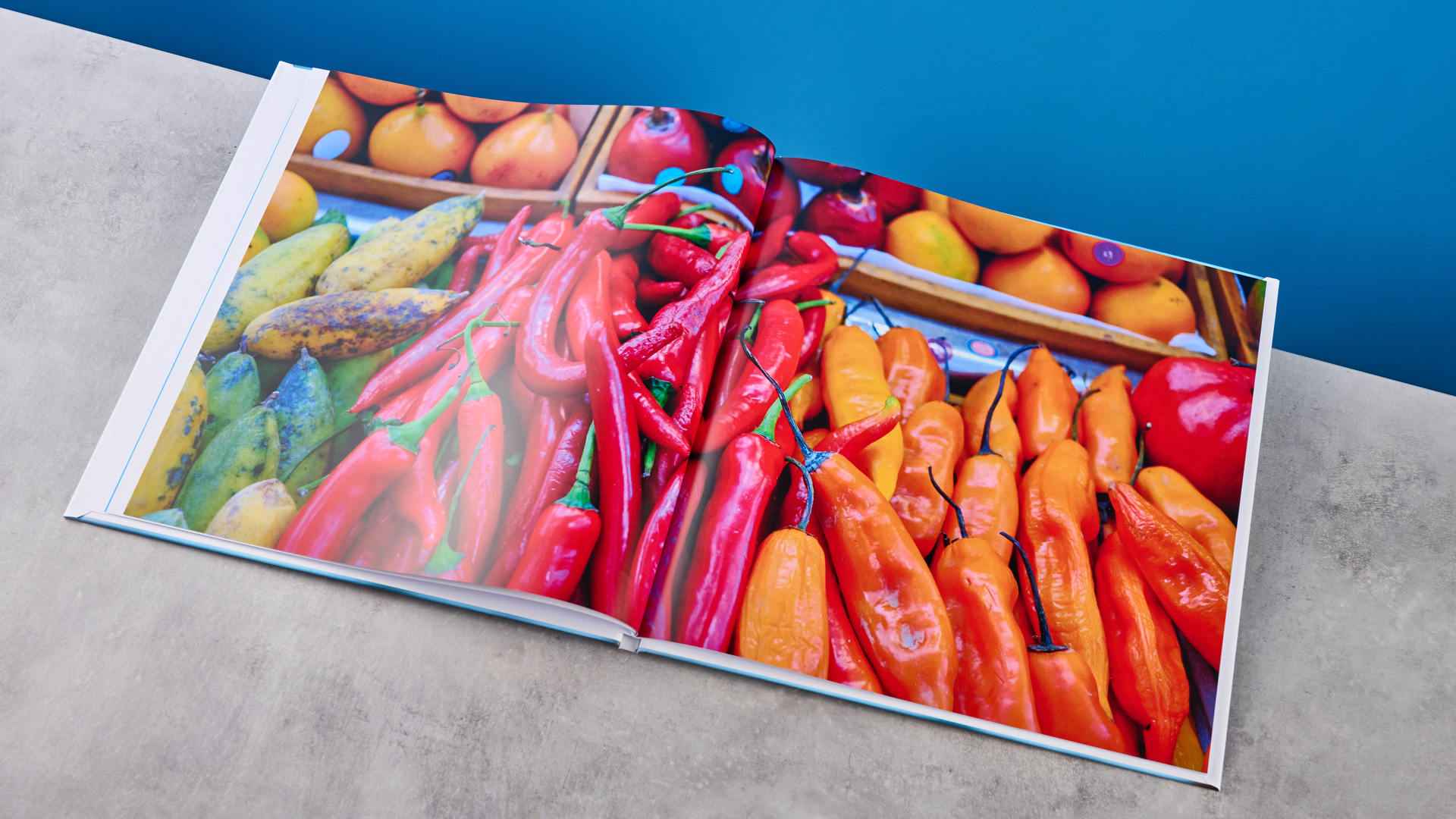
Mixbook also faces one of the same issues as Chatbooks in that red and pink tones appear oversaturated. You can see this in the vibrant image of the pink pansy flower. But overall, the images still look great.
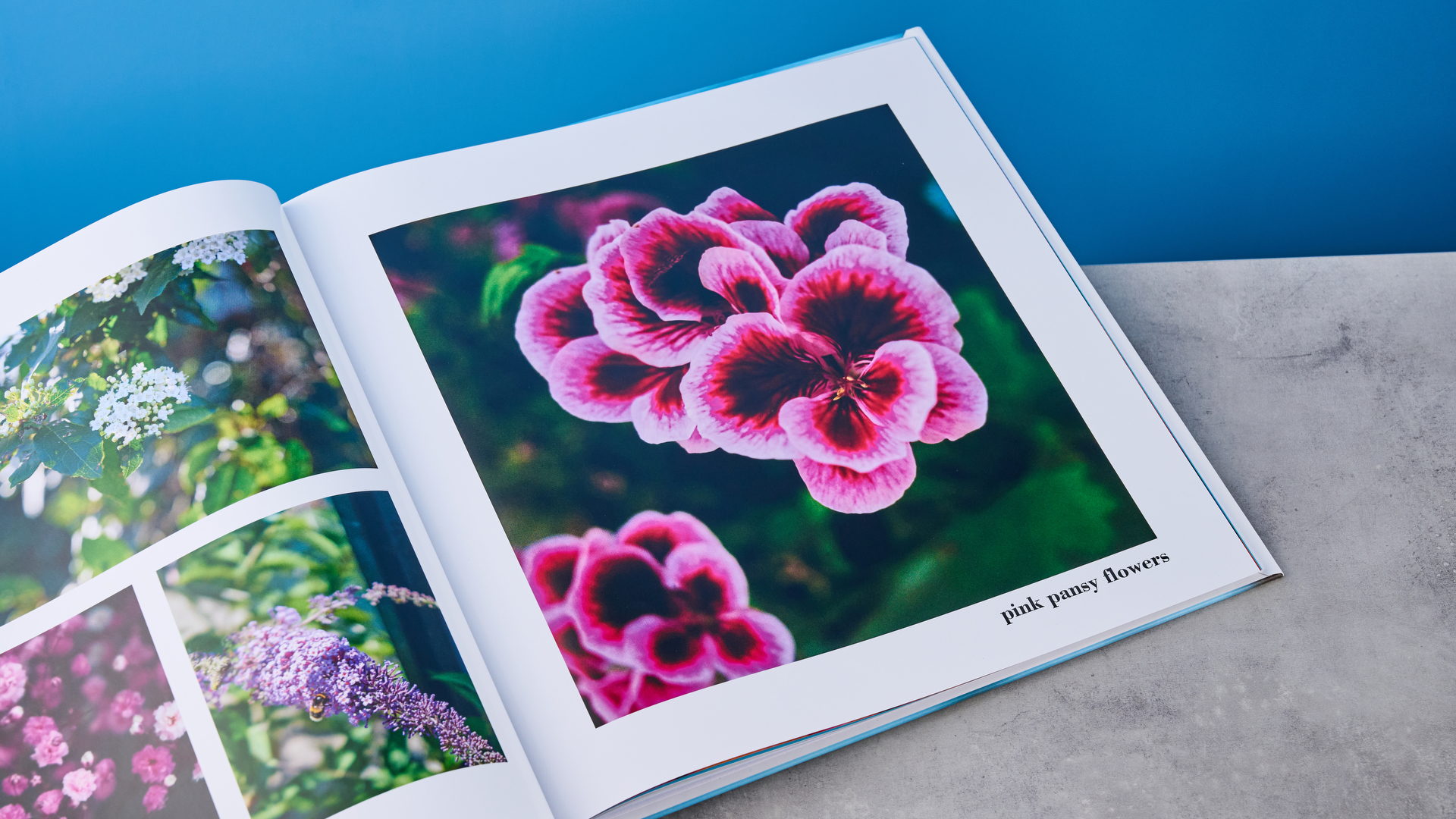
Mixbook Photo Book review: Verdict
Mixbook is by far the easiest photo book service I’ve used. I was able to customize the book to my liking, with themed presets available to make production easy. I felt like I could be totally creative and get exactly the effect I wanted with ease.
The quality of the images printed is also excellent, especially on the largest page size available (12x12-inch). The paper is thick and premium-feeling, and the color representation is also brilliant, making the images on the page feel far more lifelike.
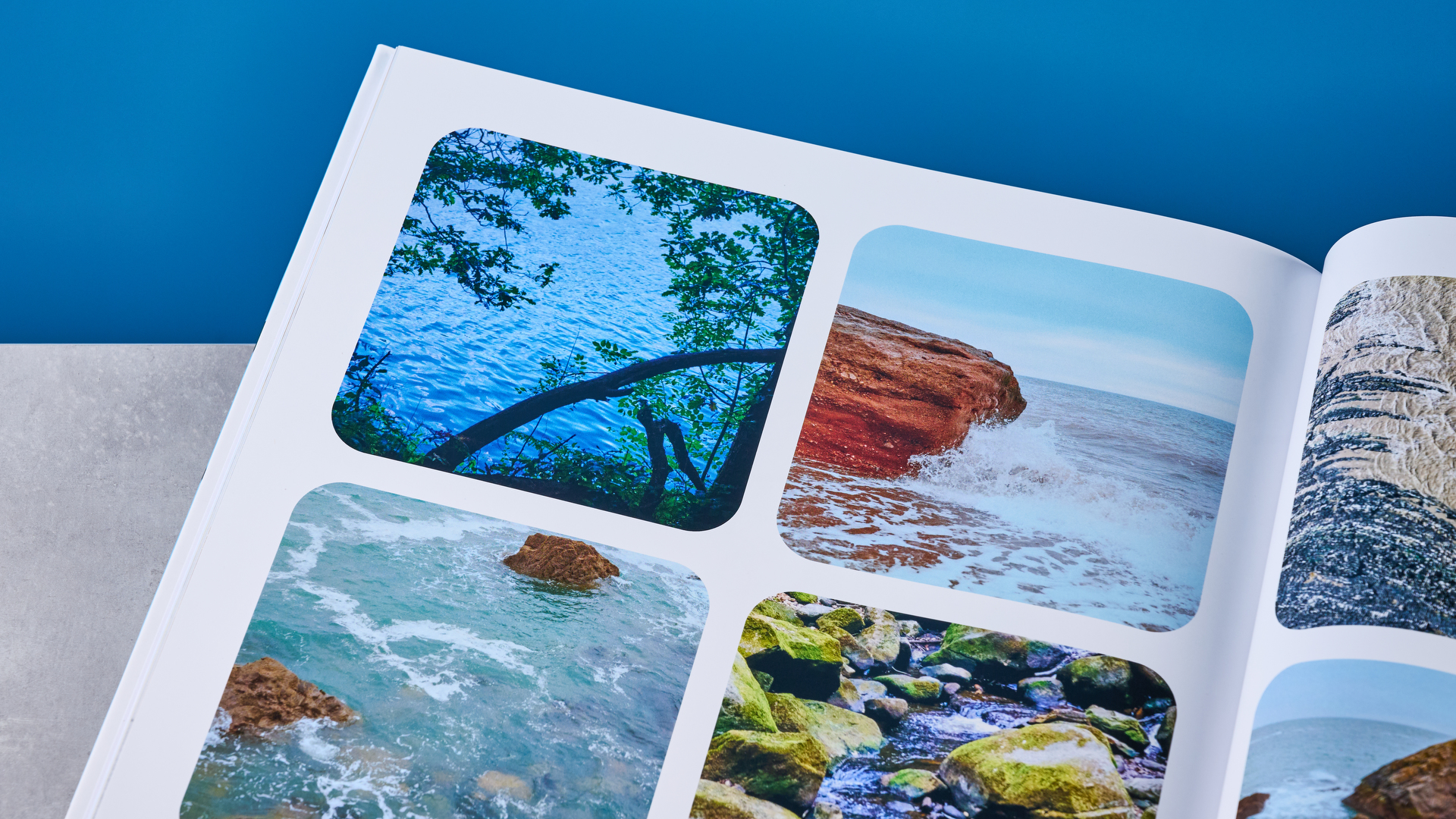
My only real qualm with the book is that vivid pink/fuchsia tones appear oversaturated on the page. Despite this, though, the high-quality finish and the affordable price make Mixbook a must-have, and keeps the service at the top of our list of the best photo books for yet another year.

Ashley is a staff writer on the the Reviews team at Tom’s Guide. She has a master’s degree in Magazine Journalism from Cardiff University and a BA in Journalism, Media and Sociology. She has written for titles including Women’s Health UK, writing health and wellness stories, and Virgin Radio UK, specializing in entertainment news and celebrity interviews. She has reported on a variety of topics including music, literature, motorsport, entertainment and health. She has previously reviewed live music events, books, and wellness products but discovering the top audio equipment on the market is what she does best. When she is not testing out the latest tech, you can find her either curled up with a cup of tea and a good fantasy novel or out hiking.
You must confirm your public display name before commenting
Please logout and then login again, you will then be prompted to enter your display name.






